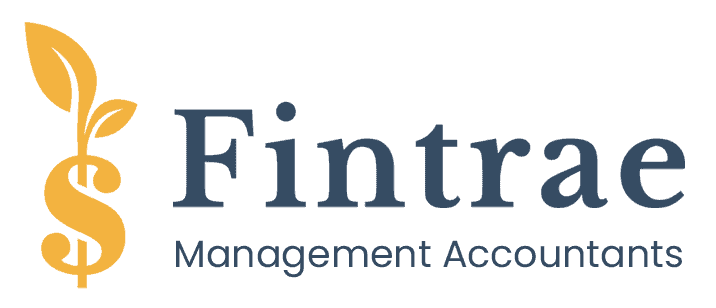Small business owners often make bookkeeping errors that can cost time and money if not addressed. One common mistake is mixing personal and business expenses, which complicates tracking and may lead to missed tax deductions or audits. Another is letting bookkeeping pile up until tax season arrives, causing last-minute stress and possible penalties.
Misclassifying income and expenses can hide cash flow problems, leading to poor financial decisions. Many also stick with spreadsheets instead of using dedicated accounting software, increasing the risk of errors. Lastly, failing to keep store important records for the required time can create legal issues. Avoiding these bookkeeping mistakes small business owners make by staying organized and using the right tools will help your business thrive.
Mixing Personal and Business Expenses Causes Confusion and Risks

Understanding the common bookkeeping mistakes small business owners make is crucial for financial success.
Combining personal and business expenses makes bookkeeping confusing fast. When you use the same account or card for both, it’s tough to tell what’s what. That confusion can cost you tax deductions or trigger unwanted attention from the IRS.
To stay organized, open separate bank accounts and credit cards just for your business. Deposit all business income into the business account, and pay expenses only from there. If you use personal funds for business costs, reimburse yourself and document it clearly.
Label transactions carefully and organize receipts by category. This makes it easier to track spending and clean up your records. Linking accounting software directly to your business accounts helps cut down on errors and improves accuracy.
If others handle your finances, train them to keep personal and business spending apart. When unsure, ask a tax pro for advice. Clear records protect your deductions and reduce audit risks.
- Open separate bank accounts and credit cards exclusively for your business.
- Deposit business income into your business account only.
- Don’t use personal accounts for business purchases.
- Label and categorize all transactions clearly.
- Keep receipts organized by category.
- Mixing funds may trigger tax issues or audits.
- Link accounting software to business accounts for accuracy.
- Reimburse yourself properly if using personal funds.
- Train others to separate business and personal spending.
- Consult a tax expert to ensure accurate documentation.
Not Keeping Books Up to Date Leads to Penalties and Stress
Falling behind on your bookkeeping can quickly turn into a headache filled with missed deadlines, penalties, and unnecessary stress. Scheduling weekly or monthly bookkeeping sessions keeps your records updated and prevents last-minute scrambles. Using cloud-based software makes it easy to update your books in real time and access them wherever you are, so nothing slips through the cracks. Be sure to track every invoice issued and payment received promptly to avoid missing entries that could throw off your financial picture.
Regularly reconciling your bank statements with your bookkeeping records is a great way to catch errors early and keep your numbers accurate. Setting reminders for tax deadlines and estimated payments helps you avoid costly penalties. Don’t let receipts pile up, scan and upload documents as soon as you get them, and keep detailed notes about any unusual transactions or adjustments.
If managing this feels overwhelming, consider hiring a bookkeeper or virtual CFO to maintain timely and accurate books. Reviewing your financial reports monthly not only keeps you informed but also helps you make smarter business decisions. And if you find yourself unable to meet tax deadlines, filing for an extension early can save you from fines and added stress.
Miscategorizing Income and Expenses Hides Cash Flow Problems

Lumping income and expenses into broad or incorrect categories makes it hard to spot financial issues. Instead, create custom categories that reflect your business operations clearly.
Separate fixed costs like rent from variable expenses like supplies to better understand spending patterns. Accounting software can auto-sort transactions, but review regularly to fix any errors.
Stay on top of your payables and receivables so you know when money is coming in and going out. Record any personal money put into or taken from the business accurately.
Keep vendor and customer info up to date to avoid confusion. Check for missing or duplicate entries, as they can distort your cash flow. Running monthly cash flow statements gives you a true picture of your business health. The better you understand your cash flow, the more confidently you can make financial decisions.
Using Spreadsheets Instead of Accounting Software Increases Errors
Relying on spreadsheets for bookkeeping might seem like a cheap and simple solution, but it often leads to costly mistakes. Manual data entry and formulas can easily cause errors, and without automation, keeping your books up to date becomes a hassle. Switching to small business accounting software with automation features helps reduce these risks. Built-in reports and dashboards give you a clear view of your finances at a glance, so you can spot issues quickly.
Most programs automate invoicing and payment reminders, which improves cash flow by making sure you get paid on time. Additionally, software includes validations that catch mistakes spreadsheets might miss. To keep your data safe, regular backups are essential, and training yourself or your staff on the software’s basic functions boosts efficiency. If you have a team, choose software with multi-user access and permission controls to keep things secure.
For added peace of mind, consider outsourcing your bookkeeping to experts who use professional tools. Don’t forget to update your software regularly to benefit from the latest security patches and features. Making the switch from spreadsheets to accounting software can save you time, reduce errors, and keep your business finances on track.
Not Following Accounting Rules and Losing Important Records

Keeping your financial records organized and intact is crucial for your business. The IRS recommends retaining receipts, invoices, and other documents for at least three years, but some records like payroll or tax returns may need to be kept longer. Using digital scanning apps can help you create searchable, backed-up copies, making it easier to find what you need during audits or tax reviews.
Organize your files by date and type, whether you prefer digital folders, physical binders, or both. Avoid throwing out documents too soon, even if you think the tax year is closed, it’s better to keep them a little longer to cover any disputes or corrections.
Also, track any adjustments made to your financial statements carefully. Keep backups securely stored offsite or in the cloud to protect against loss from fire, theft, or hardware failure. Finally, check in with your accountant about any special retention rules for your industry and review your record-keeping policies annually to stay compliant with changing tax laws. This way, you’ll always have peace of mind and be prepared for whatever comes your way.
| Document Type | Retention Period | Purpose | Notes |
| Receipts and Invoices | At least 3 years | Support tax deductions and audit proof | Use digital scanning apps for backup and organization |
| Payroll Records | At least 4 years | Verify wages and taxes withheld | Retention times may vary by state |
| Tax Returns and Supporting Documents | At least 3 years, some up to 7 years | IRS requirements for audit and review | Keep longer if fraud or errors suspected |
| Financial Statements | At least 3 years | Review business performance and compliance | Maintain both digital and physical copies if possible |
| Bank Statements | At least 3 years | Reconcile accounts and verify transactions | Organize by date and account for easy access |
| Legal Documents (e.g., contracts) | Varies, generally length of contract plus several years | Protect business interests and meet legal obligations | Consult an accountant for industry-specific rules |
| Correction and Adjustment Records | At least 3 years | Document changes to financial statements | Ensure clear descriptions and dates |
| Receipts for Major Purchases | At least 3 years or longer | Depreciation and warranty records | Keep original or scanned copies securely |
| Cancelled Checks | At least 3 years | Verify payments and withdrawals | May be needed during audits |
| Insurance Policies | Duration of policy plus several years | Proof of coverage and claims | Store securely with other financial records |
Stay in Control of Your Business Finances

Good bookkeeping isn’t just about avoiding audits or filing taxes on time; it’s about giving yourself the clarity and confidence to run your business well. By keeping personal and business expenses separate, staying current with your records, using the right tools, and following sound accounting practices, you set your business up for long-term success.
If managing your books is taking up too much of your time or causing stress, it might be time to bring in support. A professional bookkeeper or Virtual CFO can help you stay organized, compliant, and informed without the headaches.
Need help with your bookkeeping? Let’s talk. Whether you’re just getting started or ready to upgrade your financial systems, working with a trusted expert can make a big difference. Reach out today to find the support your business needs to grow with confidence.
Frequently Asked Questions
1. What are common bookkeeping errors that small business owners often overlook?
Many small business owners miss keeping detailed records, mixing personal and business expenses, forgetting to reconcile accounts regularly, delaying data entry, and not tracking invoices properly. These mistakes can cause confusion and financial issues down the road.
2. How can mixing personal and business expenses affect my bookkeeping?
Mixing personal and business expenses makes it hard to see your true business performance, complicates tax preparation, and increases the chances of errors or audits. Keeping them separate helps maintain clear records and simplifies your accounting tasks.
3. Why is regular bank reconciliation important for small businesses?
Regular bank reconciliation ensures your bookkeeping matches your bank statements. This helps spot errors, catch fraudulent transactions quickly, and keeps your financial data accurate, which is essential for making smart business decisions.
4. How does delaying data entry impact my bookkeeping accuracy?
Putting off data entry can lead to missed or forgotten transactions, making your records incomplete or inaccurate. Staying on top of recording financial activity helps you maintain a clear picture of your business’s financial health and avoids headaches later.
5. What steps can I take to avoid common invoicing mistakes?
To avoid invoicing mistakes, double-check invoice details before sending, set clear payment terms, use invoicing software to track payments, and follow up promptly on overdue invoices. These simple steps improve cash flow and reduce bookkeeping errors.




